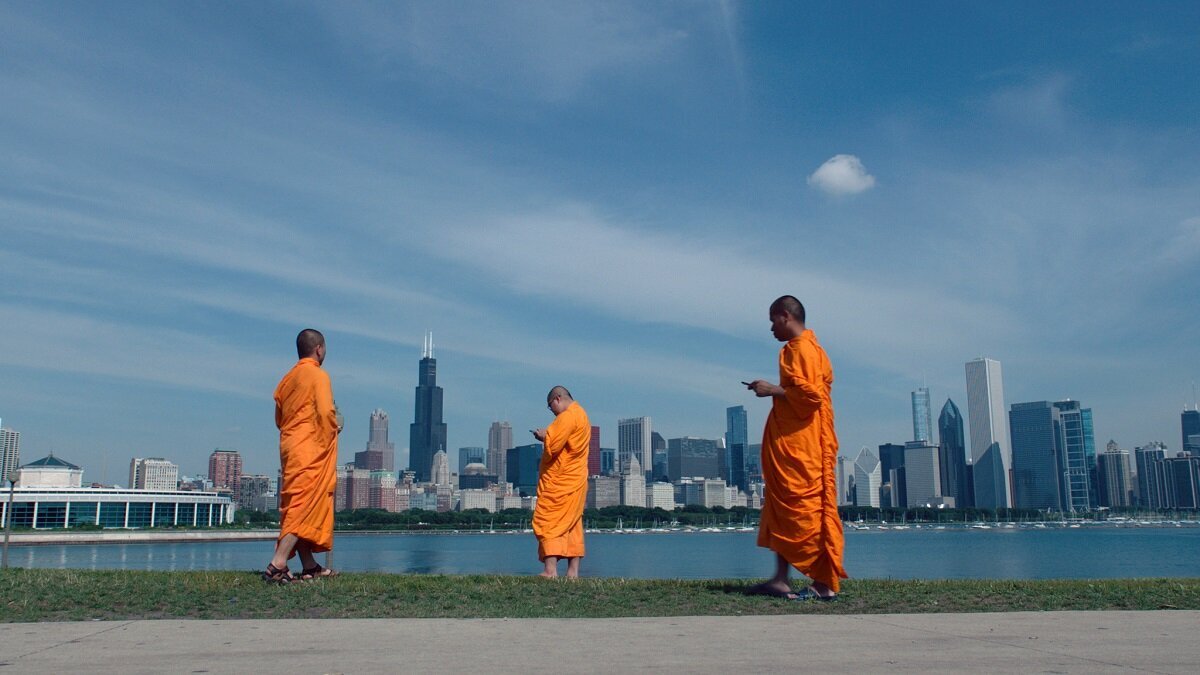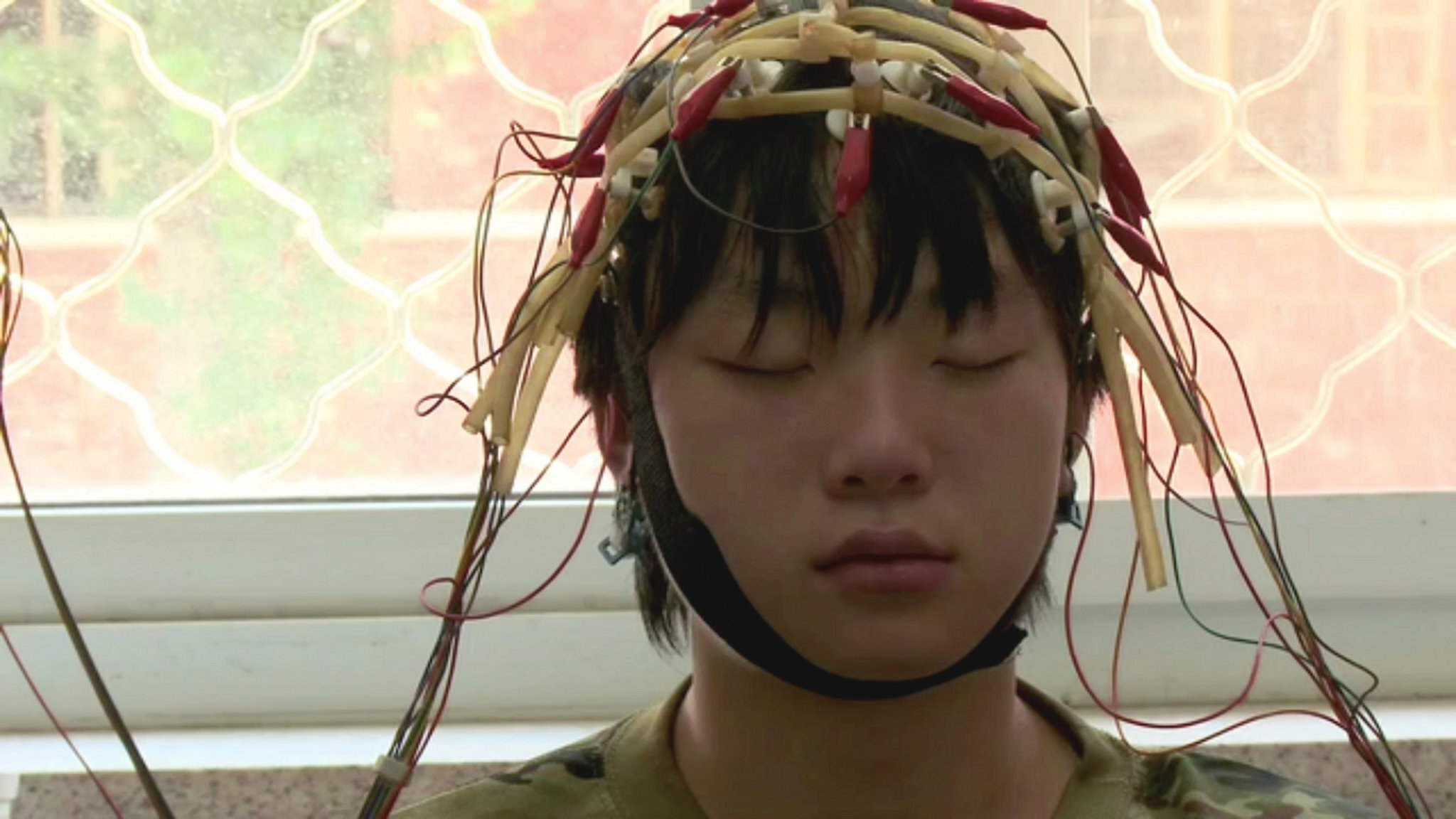As the Internet finally arrives in tiny Bhutan, documentarian Thomas Balmès is there to witness its transformative impact on a young Buddhist monk whose initial trepidation gives way to profound engagement with the technology.

ABOUT
Young Peyangki lives and studies in a picturesque monastery deep in the mountains of Bhutan. A few years have passed since the king allowed TV and internet into the country, and now the structured daily rituals of candle lighting and recitation of prayers compete with the powerful lure of smart phones. Privately, Peyangki is passionate about love songs and falls in love on WeChat with a young singer from the city of Thimphu. Disinterested in study and often reprimanded by his masters, he sells medicinal mushrooms to make enough money to leave the monastery in search of “the one he dreams of night and day”. Peyangki trades in his robes for street clothes, but will he succumb to romance and the temptations of the city or return to his pious life in the monastery?
Synopsis
Young Peyangki lives and studies in a picturesque monastery deep in the mountains of Bhutan. A few years have passed since the king allowed TV and internet into the country, and now the structured daily rituals of candle lighting and recitation of prayers compete with the powerful lure of smart phones. Privately, Peyangki is passionate about love songs and falls in love on WeChat with a young singer from the city of Thimphu. Disinterested in study and often reprimanded by his masters, he sells medicinal mushrooms to make enough money to leave the monastery in search of “the one he dreams of night and day”. Peyangki trades in his robes for street clothes, but will he succumb to romance and the temptations of the city or return to his pious life in the monastery?
FILMMAKERS
Thomas Balmés has been working as an independent director and producer of nonfiction films, specializing in international co-productions, since 1992. His initial projects includes studies of filmmakers James Ivory and Michelangelo Antonioni.
Thomas Balmés
Thomas Balmés has been working as an independent director and producer of nonfiction films, specializing in international co-productions, since 1992. His initial projects includes studies of filmmakers James Ivory and Michelangelo Antonioni.
He us regularly invited to conduct lectures and master classes in France and abroad such as Brown University, the Watson Institute, Lisbon International Film Festival.
Thomas directed his first film in 1996: Bosnia hotel – the story of Kanyan peacekeepers in Bosnia. This was followed by Maharajah Burger: Mad Cows, Holy cows – about the mad cow crisis as seen from conversion to Christianity of a Papuan Chief, was honoured with the Silver Spire Award at the San Francisco IFF. He directed a sequel in Papua the fallowing year: Waiting For Jesus.
Next documentary A Decent Factory, was broadcasting worldwide to many coutries and recived more then 50 festival prices, including Europa Award. In this documentary director follows the Ethical Researcher of Nokia company on her trip to China to examine suppliers of Nokia.
He us regularly invited to conduct lectures and master classes in France and abroad such as Brown University, the Watson Institute, Lisbon International Film Festival.
His next film Babies takes a look at one year in the life of four babies around the world – from Mongolia to Namibia to San Francisco and Tokyo.
The last fim Happiness reflecting impact in a moment of authorization television and Internet in Bhutan. We see a story through eyes eight years old monk named Peyangki, preying eagerly for a TV set in Laya, the last village in Bhutan to go through the proces of globalization. The film premiered in-competition at the 2014 Sundance Film Festival and it won The Documentary World Cinema Cinematography Award at the festival.
Reviews
“Thomas Balmès' profound documentary explores the ripple-effect ramifications of a seemingly positive invention perverting an unspoiled community.” - Variety
“A provocative doc about lives upended by technology.” - The Hollywood Reporter
“Stunning.” - Vox
RogerEbert.com




